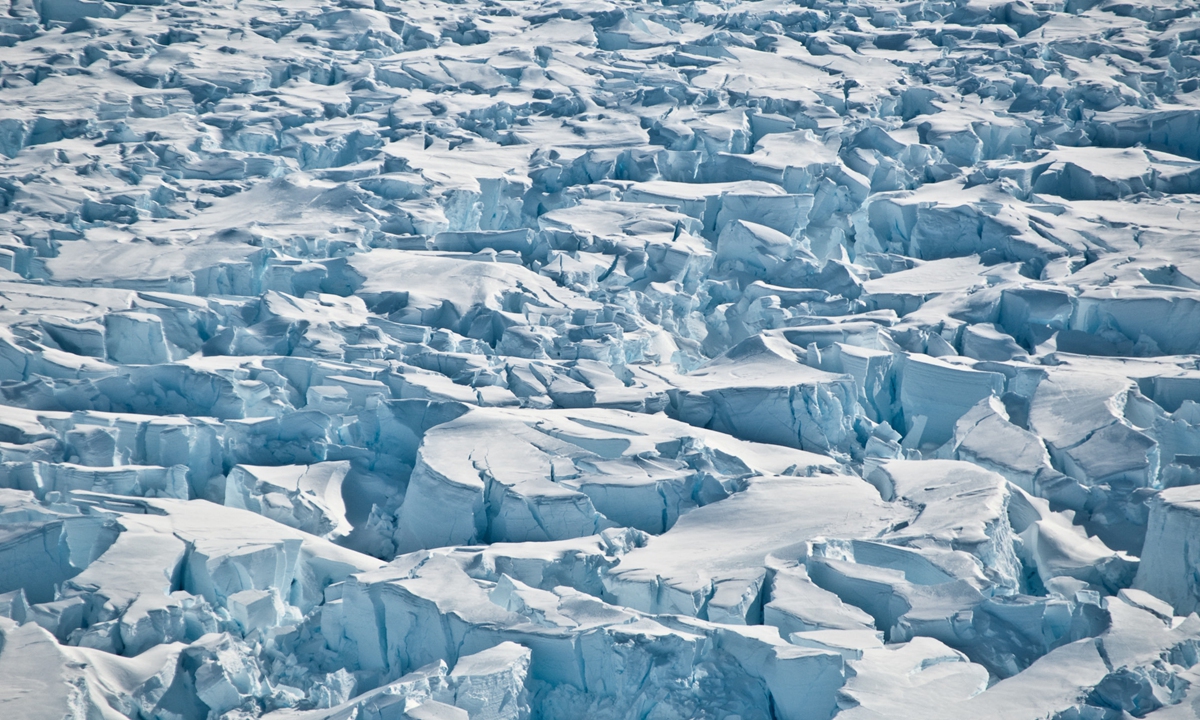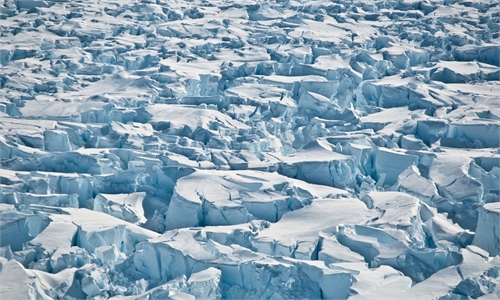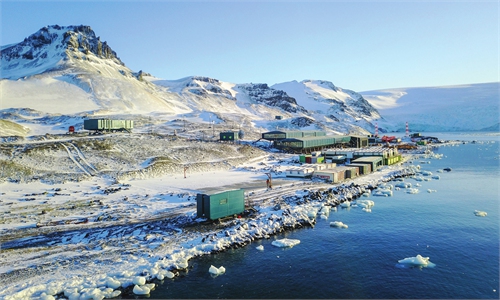Record low Antarctic sea ice extent could signal major shift

Crevasses near the grounding line of Pine Island Glacier, Antarctica Photo: VCG
Sea ice around Antarctica shrank to the smallest extent on record in February, five years after the previous record low, researchers said Tuesday, suggesting Earth's frozen continent may be less impervious to climate change than thought.In late February, the ocean area covered by ice slipped below the symbolic barrier of 2 million square kilometers for the first time since satellite records began in 1978, according to a study in the journal Advances in Atmospheric Sciences.
Researchers found that the key driver of ice loss was change in temperature, though shifts in ice mass also played a lesser role.
Both the North and South pole regions have warmed by roughly 3 C compared to late 19th-century levels, three times the global average.
Antarctica encountered its first recorded heat wave in 2020, with an unprecedented 9.2 C above the mean maximum, and in March a research center in eastern Antarctica saw temperatures soar 30 C above normal.
But extreme aberrations of this kind are recent.
Unlike sea ice in the Arctic, which has diminished by 3 percent a year since the late 1970s, sea ice in Antarctica expanded over the same period by 1 percent per decade, albeit with large annual variations.
Ice cover during 2022's austral summer shrank most around West Antarctica, which has been more vulnerable to global warming than the far larger East Antarctica.
Melting sea ice has no discernible impact on sea levels because the ice is already in ocean water. But diminished ice cover is nonetheless a major concern because it helps accelerate global warming, said co-author Yang Qinghua, professor at China's Sun Yat-sen University.
AFP



